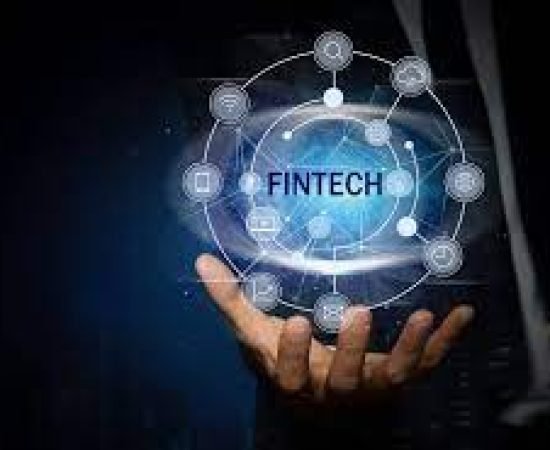FinTech depicts the innovation fueling advancement in money related administrations. It advances mechanization and drives more trade online, giving shoppers the control to control and oversee their accounts.
Buyers and businesses likely utilize FinTech every day by means of computerized budgetary exchanges and other mechanical breakthroughs. We’ll investigate how FinTech is modernizing and revolutionizing trade and buyer monetary assets.
Even total newcomers may learn how to use Nydoz in a matter of minutes. With an internet connection, you may access your money from anywhere in the globe, whether you’re at home, at work, or on vacation.
What is FinTech?
FinTech is an shortened form for “financial technology.” At first, individuals saw FinTech as a techpreneur countercultural development outlined to upend conventional managing an account and lending’s overwhelming controls and solid resistance to alter. It alluded to backend forms for setting up servers and computer program applications for the front conclusion of conventional keeping money teach. The objective was to create sending and accepting cash less demanding.
It’s more challenging to characterize FinTech nowadays since its meaning has extended, and so has the monetary innovation accessible. What hasn’t changed is that FinTech employments innovation to disturb the conventional budgetary administrations division.
In brief, FinTech may be a continually advancing umbrella term for businesses that utilize innovation to robotize, alter, or move forward budgetary administrations for businesses and customers alike.
How is FinTech changing business?
Monetary innovation new businesses and built up companies serve different groups of onlookers with horde advances and administrations. Whereas FinTech benefits a wide range of clients, its tech offerings prioritize two basic components: openness and speed.
Usually what FinTech brings to businesses:
- Fast access to powerful financial tools. FinTech is an equalizer, allowing businesses of all sizes and across all industries to access robust financial tools instantly. Using speedy, always-on internet connections, big data and mobile connectivity, businesses can easily access complex, feature-rich financial software suites and managed services. In the past, such setups would have cost millions of dollars in fees, equipment, licenses, trained technicians and dedicated IT teams.
- Unparalleled business insights. FinTech has created smart information displays with real-time updates and data analytics. With this information at their fingertips, business leaders gain unparalleled business insights. They can update their marketing on the fly to take advantage of favorable conditions or pivot to a new strategy.
- Customer accessibility and convenience. FinTech offerings help businesses bring new access to their customers. Businesses can provide customers with intuitive software interfaces, positive user experiences, fast internet bandwidth and more. Customers can access financial information and transactions in real-time on mobile devices or computers. These innovations have spurred omnichannel payments processing, mobile banking, peer-to-peer payments and even new ways of evaluating credit applications.
What industries are being disrupted by FinTech today?
Today’s FinTech players are revolutionizing businesses like installment handling, riches administration, cryptocurrency, and more. Here’s a see at how businesses are utilizing FinTech to fine-tune and support their offerings to superior serve clients.
1. FinTech is revolutionizing payment processing.
Installment preparing has long been a prime FinTech target. Customers need exchanges to be as clear as conceivable whereas keeping up the most noteworthy security measures. The most excellent payment processing companies utilize cutting-edge monetary innovation to create exchanges consistent and secure.
Here are a few cases:
- Square. Square is arguably the most recognized FinTech company in the public eye. Square made mobile payments ubiquitous with its innovative smartphone card-swiper technology. Read our in-depth Square review to learn more about the financial technology behind the service.
- Stripe. Stripe is Apple’s official partner for mobile payments via Apple Pay. It’s also a leader in mobile-optimized and app-based checkout systems. Stripe’s technology meshes with Apple’s iOS-based biometric security and digital wallet tech, allowing millions of consumers to check out in various apps and mobile sites via Face ID or Touch ID on their phones. Stripe is also our choice for the best online payment processor; read our Stripe review to learn why.
- Payfirma. In 2011, Payfirma became the first company to bring mobile smartphone card reader technology to Canada. The company has since expanded into a global omnichannel merchant account services processor that helps businesses accept credit cards and debit cards online, in stores, and on mobile devices.
2. FinTech is disrupting alternative lending.
Elective loaning administrations give novel approaches to individual credits, bringing loaning choices to more individuals with quicker, simpler application encounters than conventional monetary educate can give.
Here are a couple of illustrations of FinTech-driven elective loan specialists:
- Prosper. Launched in 2005, Prosper was the first peer-to-peer lending marketplace. It’s weathered many changes and industry regulations to grow into a well-regarded alternative lender.
- LendingClub. LendingClub launched in 2006, just after Prosper. LendingClub also began as a peer-to-peer lending marketplace and experienced many of the same trials and industry regulation challenges as Prosper. It is now the largest marketplace of its kind.
- Upstart. Upstart is a unique personal loan service founded by former Google employees. It considers your education and occupational history in addition to your credit score to provide a more accurate lending rate. Consequently, it extends lending opportunities to more people than traditional services do.
3. FinTech is making its mark on wealth management and automated investing services.
Robotized contributing administrations, too known as robo advisors, utilize machine learning calculations and tremendous sums of information to create contributing simple and cheap, cutting out the expensive human advisor component.
Here are two illustrations:
- Betterment. One of the first automated investment services, Betterment offers a website with an easy-to-follow, transparent process to help novice investors begin their wealth-building journey. Betterment features low fees and no account minimum.
- Wealthfront. Unlike Betterment, Wealthfront has a $500 minimum but charges no fees for the first $10,000 managed. It’s an attractive proposition for first-time investors.
4. FinTech is fueling cryptocurrency.
Numerous competing FinTech-driven cryptocurrency trades would happily take your cash, but these two administrations are among the foremost built up. Their highlights that put them ahead of the swarm.
- Kraken. Kraken is a feature-rich crypto-trading marketplace that combines typical exchange features with forex-like trading and management. Kraken is also known for having some of the tightest security in the industry and is one of the few exchanges to run a “dark pool.” Kraken was the first Bitcoin exchange to have trading price and volume displayed on the Bloomberg Terminal and the first to pass a cryptographically verifiable proof-of-reserves audit.
- Coinbase. Called the PayPal of Bitcoin, Coinbase is a cryptocurrency exchange and a comprehensive digital wallet. Coinbase bills itself as the world’s most popular way to buy and sell Bitcoin. It exchanged more than $195 billion in crypto in 2020 alone.
The future of FinTech
Numerous financial specialists ponder what long haul holds for FinTech. Kalle Radage, COO of Neptune Digital Assets and previous president of Payfirma, accepts FinTech new businesses will proceed investigating ways to form computerized installments less demanding. “Frictionless installments and managing an account cruel speedier development for businesses and superior encounters for consumers,” he said.
Simple cash exchange has propelled numerous FinTech new businesses, and it’s too a byproduct of FinTech advancement. For case, Charge Clerico established the online installment benefit supplier We Pay as a way to diminish money-transfer contact among companions. And the gigantically well known social installments app Venmo (and its business-focused Venmo for Trade advertising) outlines how responsive individuals are to simple ways to exchange cash.
Blockchain innovation is another FinTech range anticipated to develop. Blockchain gives a decentralized, more straightforward, more secure strategy of following the trade of cash and other resources – counting supply chain things, vehicle titles and indeed jewels.
Other FinTech segments that will proceed to develop incorporate virtual keeping money and trade exchanges, more ways for businesses to put through straightforwardly with clients, and quicker, more reasonable budgetary administrations.
Nydoz Get to top-tier speculation openings through our comprehensive speculation stage, advertising master bits of knowledge and a suite of progressed portfolio administration instruments. It tack, analyze, and optimize your money related life with our natural and easy-to-use individual back administration stage.




